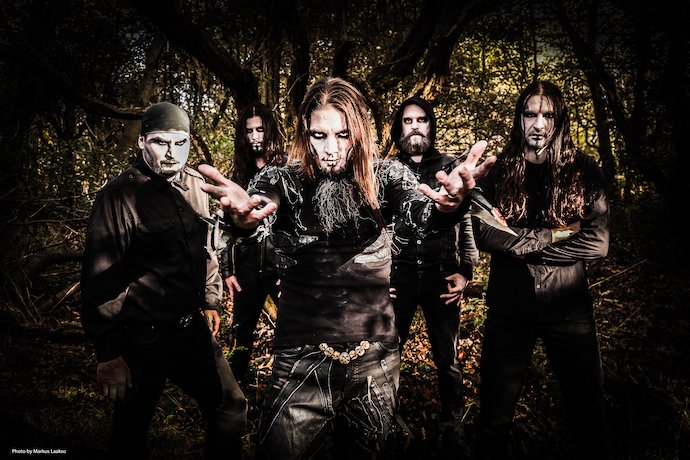
The latest Dark Fortress album, Spectres from the Old World, released back in February, has gotten good reviews. This is not surprising and it is a natural consequence of the amount of experience the musicians that form part of this band have. Both Ylem and Venereal Dawn are on my playlist of favorite BM albums, and I must say the latest album made it as well, of course. It is not just more of the same though, it has a distinct touch, it stands on its own, and it fulfilled my expectations.
I took the opportunity to interview Morean, who I admire a lot both as a composer and as an excellent, multifaceted metal musician. His musical expertise makes all his bands and contributions truly interesting. In fact one of his orchestrations of the three parts of the Requiem performed by Triptykon and the Dutch Metropole Orkest at Roadburn Festival is coming out soon through Prowling Death Records / Century Media Records. There are many interesting projects and bands surrounding Morean but the focus of the first part of this in-depth interview is going to be Spectres from the Old World, its composition, its music, and other particulars surrounding its release. In the second part of this interview we will deal solely with the lyrical themes, which are complex and very interesting.
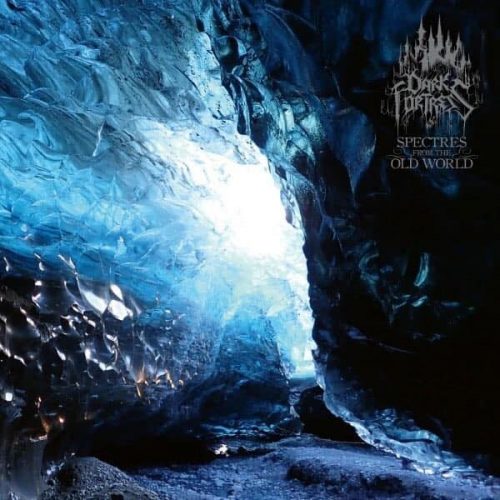
Tell me about the composition process, how did you do it? How long did it take? Who produced it?
V Santura always writes most of the music. When a big bunch of songs are done in a basic and instrumental form, he demos them and sends it to the rest of us. Then I start on concept, lyrics and vocals, and meanwhile he works out the rest of the songs with the others — drum lines, other people’s riffs and ideas, etc. Sometimes I’ll write a little track as well, but not this time. Once all the endless recording process is done for the band, we collect guest contributions — this time, some choir vocals and some trombone lines at the end of the album.
It all took far too long this time around — about five years between writing the first riff and bouncing the last finished mix, but mainly because often we’re so busy with other stuff that there’s months or even years in between bursts of working on those new songs.
Since Stab Wounds, all our albums have been produced and engineered by our own V Santura.
How would you describe the music of the new album?
Compared to its predecessors, we went for a somewhat more compact and aggressive sound on Spectres from the Old World. Our music has always manifested between the brutal and the epic extremes, and it’s mainly this epic side we allowed ourselves to develop on our last few albums. So it was only natural to shift the focus a little bit back again, away from very long songs and a lot of half-time drum beats, back to a more classic and forward pace.
But all the ingredients are there also on this album; it’s just the ratio in which they are applied here that is slightly different. What is just a short clean intro on this album might have become its own entire song on Venereal Dawn for example; or a verse of a song may be as short as a single line, where on VD, sometimes a verse had more riffs in it than other bands’ entire songs. Nevertheless, what’s important is that those contrasts are still in place. It’s of course a matter of personal preference, but if it’s all just the same old blast beat everywhere, we get bored to death.
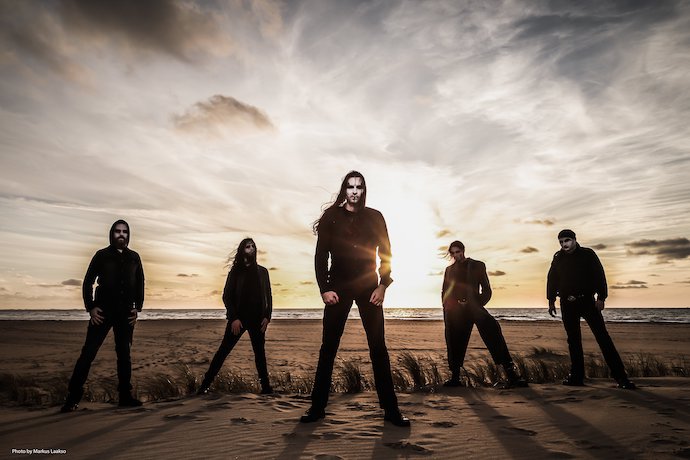
You are an acclaimed composer — how much do you let other non-metal music inspire you when it comes to Dark Fortress? How can other types of music enrich metal?
Since I’ve always liked more than one type of music, I’ve always been a total Babylonian when it comes to genres, and for more than two decades, building bridges between styles and actively disregarding the neat little nooks to which each genre is supposed to limit itself has been somewhat of a defining feature in my work as composer. Since in Dark Fortress it’s usually the two guitarists who write the majority of the songs, my musical input is limited to what I do with the vocals and the odd orchestral layer added to some songs.
I’ve long stopped caring where my musical influences come from, which can be anything. If it makes sense to me, that’s good enough. Metal is a rather conservative genre, and some people are so narrow-minded that they freak out immediately if there’s even the slightest unexpected element in the music, like a clean vocal line in a brutal song. The result of that way of thinking is that a genre falls into endless reproduction of always the same stuff. But to me, innovation and creativity are always absolutely crucial in art, and it’s not like Dark Fortress is a very experimental band in that sense anyway. We’re rather steady in our style, and quite careful when it comes to introducing other elements than what you usually find in Black Metal; at least that’s how we feel about it.
If you listen to other bands we’re involved in like Alkaloid or Noneuclid, the pallet of ingredients is vastly more diverse and adventurous than in Dark Fortress’ music. But within those little niches that I get to fill in here, I do like to go further than the standard metal band would. Take for example the choir bits in the last two songs on Spectres from the Old World. I could have put a cheesy two-chord standard choir bit there, and it would have sounded like any other metal choir part. But since my daily bread is writing contemporary classical music in all its complexity, I was able to add a choir layer to those songs that is much more influenced by the more dissonant and abstract gooseflesh-inducing harmonies of composers like György Ligeti than the neat and boring diatonic major-minor chord changes everyone else uses always.
Most people aren’t even aware that there is classical music written after Beethoven and Tchaikovsky; to me, that’s when the interesting stuff actually starts. Black Metal wants to overwhelm you, spook you, and send metaphysical shivers down your spine. It’s actually perfect for the complexity and otherworldliness of contemporary harmonies and sound worlds, so I think the two styles fit together perfectly actually, and bands like Dodecahedron, Emperor, or Mayhem have proved this in abundance in the past. If a black metal song sounds like infantile tralala when you turn the distortion off, it’s not black metal to me. The “evilness” has to be in the notes themselves already.
So I’m really happy I can add this extra sophistication to some of our tracks to set them apart from the standard, and my band mates appreciate that as well; it’s exactly those extra ingredients that give class to what would otherwise be just another necro song. If you want everything to sound the same, this is the wrong band to listen to, even though in my own view, Dark Fortress is anything but experimental. You should hear how far I go in my other music.
What have you done to make this album unique?
That’s a hard question to answer, because if and why an album is unique is more a question for the listener. First of all, we don’t release anything if we don’t feel we’ve done the absolute best we’re capable of at the time. So the sheer amount of hours that goes into such a production, from the writing to the sound and the artwork etc, is enormous every time. That’s another reason why it takes us so long sometimes between releases, because it’s a huge undertaking to meet the standard we want and we have set on our previous albums.
Besides a rather meagre amount for Santura for all the months that his studio is blocked for his normal business when he makes a Dark Fortress album, we earn pretty much nothing for this work, which is another problem that most of us extreme metal artists are stuck with. All those weeks or months you can’t generate regular income when you work on a metal album have to be earned and freed up in advance in your regular work first. And in times that we musicians struggle so hard to get by at all, this has become really difficult. It’s not a question of not wanting, believe me.
As for my part in all this, I think you won’t find many album concepts that give a central spot to the laws of thermodynamics and tectonic forces rather than the usual second-hand metal clichés. We also had a different approach for the artwork this time, since it’s all made with my own photos, rather than the paintings and drawings of fictional visions on the other albums. It seemed the perfect way to express this magic and beauty of the physical universe, and I’m very proud to have stood in places that make the fictional worlds we’re used to look tame and boring.
We always try to offer the most awesome things we encounter to our listeners. And in general, our audience has hopefully also come to expect more than blast beats on our albums, even though the basis for us is always black metal, or at least metal in general. A lot of time goes into finding this balance as well, and every clean outro, every jazzy middle section, and every outside element like choirs, strange languages, or funky instrumental layers adds contrast to the usual brutal stuff and makes it work better in the flow of an album as a whole. It’s completely authentic; for if it’s not, if you compose just in order to please expectations, everyone will hear that, and you rightfully fall through the cracks if you deliver something half-assed and not genuine.
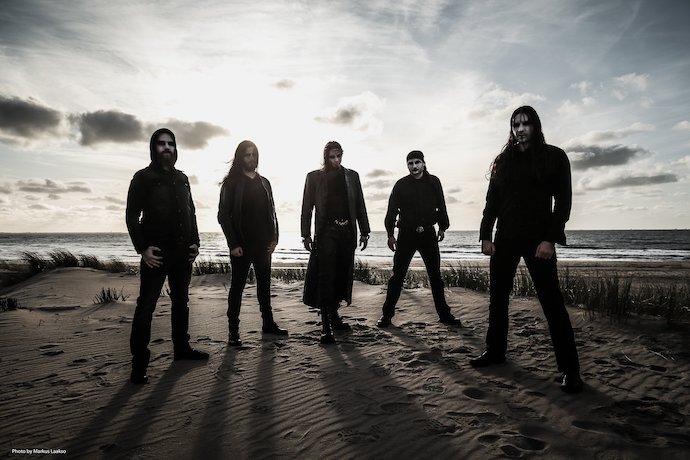
What vocal techniques did you use for this album?
I always look for variation in what I do, exactly for the reasons mentioned above, also in my metal vocals. I’ve always incorporated for example the Tibetan undertone singing technique, which retains the sound and feel of distorted vocals, but allows you to add a melodic component to it in this nice super-low register. And through the years, I’ve become more and more confident with my real clean vocals as well, even though the brutal vocals are always the main thing in this band. We spend a lot of time during recordings fine-tuning every vocal line, sometimes even every word with exactly the right sound, rather than just going aaaah over everything in always the same way. No point in boring yourself when you create, is there? And I think you can hear that on the album, no matter which song you listen to.
How has been the feedback from the audience and reviewers so far? How important is it for you?
As mentioned before, we don’t write to please anyone but ourselves, and if you’re truly your own worst critic, that’s also enough for others to be able to enjoy it. We’re not complacent or lazy in that way. So what we create is not dependent at all on the question if anyone else likes it. But of course we do want others to enjoy it, even if that doesn’t determine how we write our stuff, and it’s been great to see that most people seem to love the album. We get messages and great feedback every day from our fans, and reviews have been very enthusiastic for the largest part. Some people don’t like it, and that’s totally ok. You can never please everyone. But since it’s been a bit of a struggle this time around to get the album done properly, not only due to logistic difficulties, but also because of ever-growing musical differences within the band, we are more than just a little proud how it’s turned out, and how it all came together in the end.
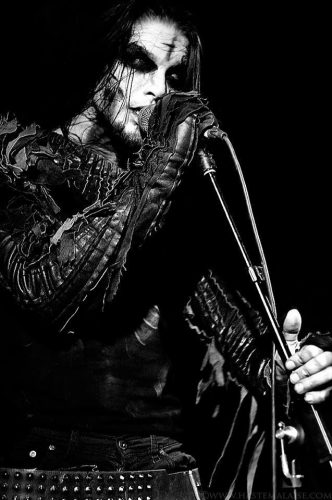
How are you sorting out cancellations? What’s the future for the tours you guys were planning after the release.
Since the 2020 concert season started collapsing completely for everybody last week, everything we had planned for this year has been suspended in the same bubble of question marks that is affecting literally the whole planet right now. Nobody can predict at the moment for how long our live activities will be suspended, and there’s no point at the moment to get upset about it. This pandemic is much bigger than any one field of society, and we have to be patient and remain positive.
Of course both we and our fans cursed a lot when it became apparent that all this stuff we had looked forward to for so long got canceled for an unpredictable and possibly quite long period — returning to the stages in a big way for us after being pretty absent in recent years, touring the US for the first time, European tours, summer festivals, Inferno in our beloved Norway, to name but a few things that are on hold right now. But credit to the promoters and bookers these days who are already trying to find replacement dates. With a bit of luck, we still get to do all these shows, even if they happen a year later than planned. For now, what’s important is that we get through this pandemic as unscathed and healthy as possible as a society; as soon as it’s possible again, we’re gonna do everything to return to our live plans as we had them before things went pear-shaped.
What are your personal views on Black Metal?
Our drummer once worded it perfectly: “Black Metal is the musical expression of psychic abysses.” Other than that, and describing the defining musical elements of the style, which we all know, I don’t have much more to add. From my perspective on music, which is pretty far out maybe because of my very varied work, I see the whole genre discussion as splitting hairs anyway. It’s one way to have fun with music for the fans and journalists, endlessly discussing whether Behemoth or Dimmu Borgir are Black Metal nor not. To us who make this music, this discussion is utterly irrelevant.
If there’s one thing that’s supposedly crucial to Black Metal, it’s individualism and nonconformity, and I subscribe to that alone. Isn’t it ironic that, in reality, the genre has become so goddamn conformist that you wonder if they’re trying to be more catholic than the pope? All I can do is laugh my ass off at this. It’s been more than 30 years now that I’ve been playing metal concerts, and I’ve literally never cared about those artificial definitions of what you can or cannot do in a certain style. So why start now? What’s this supposed to achieve? It doesn’t make a single song or riff better.
https://www.facebook.com/FlorianMagnusMaierMoreanOfficial/
